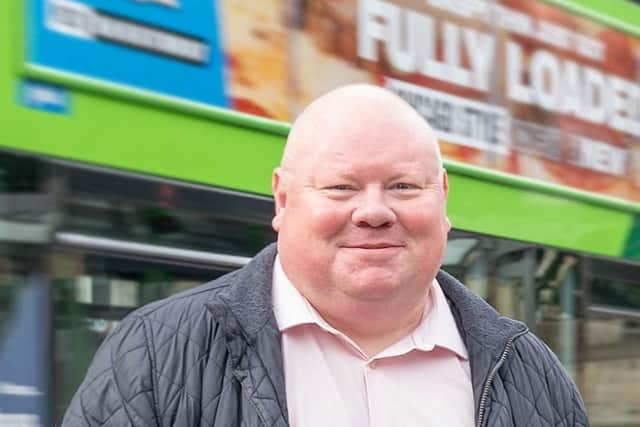West Yorkshire bus franchising could put community operators out of business: Andrew McGuinness
What you may not have seen, is that there are two routes being considered – the Mayor’s preference, franchising, which would bring buses under the control of the West Yorkshire Combined Authority; and Enhanced Partnership Plus, a model for reform that collectively as an industry, we feel provides a better solution for the region.
The Confederation for Passenger Transport (CPT) works with all bus operators, but one of our strengths in particular, is that we’re able to act as a voice for small or medium sized firms in this region. These companies can range from hyper-local services, connecting small villages and hamlets, to businesses with a fleet of 50 vehicles or more.
Advertisement
Hide AdAdvertisement
Hide AdWhilst these operators aren’t as big as some of the bus companies you might have seen regularly ferrying passengers to and from West Yorkshire’s towns and cities, they play an equally vital role. In fact, their agility and local knowledge is their big strength.


They’re often based within the communities they serve, are closely attuned to the needs of bus users and as such, understand their requirements. This nimble approach helps provide a transport ecosystem that can cater for a variety of needs.
Through the CPT, smaller operators have had a seat at the table amongst their bigger counterparts. We’ve been able to work collaboratively through the existing Enhanced Partnership, and West Yorkshire has a good recent track record of working together.
Enhanced Partnership Plus goes much further. It gives the public control that is often highlighted as only possible with franchising, while providing other benefits too. It means that service improvements could be made holistically and quickly, overseen by a new Network Management Group, ultimately chaired by the combined authority.
Advertisement
Hide AdAdvertisement
Hide AdWhereas franchising would not be introduced until 2026 at the very earliest, Enhanced Partnership Plus can start delivering benefits within the next 12 months. And unlike franchising, the financial risk sits with the operators, not with the taxpayer, a crucial point when we’re seeing multiple local authorities declare effective bankruptcy.
But the disbenefits of franchising could be felt harshly by small and medium sized providers. Under franchising, bus companies will still have a role and will have to bid for routes they wish to serve. For smaller community operators, this could provide a totally new problem. Often the owners of these businesses are bus drivers themselves, and don’t have the time to partake in complex and lengthy procurement processes.
This administrative burden is already having a negative impact on our members. Depot and land leases in this industry typically last 10-to-15 years, and current uncertainty is delaying investment decisions – decisions that could lead to better buses and improved services, getting people to work and school.
In Manchester, franchising so far has meant that virtually no small operators exist in that market. It is a real risk that taking the same route for bus reform in West Yorkshire could spell the end for some of these companies and their loss would be a loss to communities and passengers.
Advertisement
Hide AdAdvertisement
Hide AdThese companies have often been set up locally to serve a specific need.
If a large bus company loses a franchise, they can quite reasonably run services somewhere else and still have a business. If one of our members loses their local route, they can’t just go and supply their trade in another town or city elsewhere in the country. It realistically could lead to some of these vital players in the market going out of business.
We all agree that bus reform is needed and we agree with the Mayor on many of the points raised through the consultation. It’s simply that there is a serious alternative which can deliver for the public, whilst safeguarding the future of smaller operators, the communities they serve and the jobs they provide.
Andrew McGuinness is Regional Manager North of the Confederation of Passenger Transport
Comment Guidelines
National World encourages reader discussion on our stories. User feedback, insights and back-and-forth exchanges add a rich layer of context to reporting. Please review our Community Guidelines before commenting.